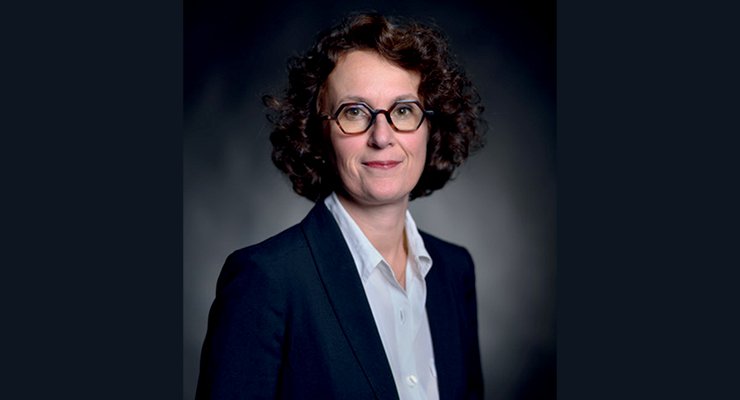A chair on metabolic syndrome
Academic chair DOT : Disruptive Organoids Technologies – advanced organoids engineering strategy against metabolic syndrome.
Chercheur responsable de la chaire :
Cecile Legallais, directrice de recherche CNRS
Laboratoire biomécanique et bio ingenierie, BMBI UTC-CNRS UMR 7338
Partenaires : Laboratory of organ biosystem – University of Tokyo; Laboratory of Micro Mechatronic Systems, LIMMS CNRS/Institute of Industrial Science
Description
Metabolic Syndrome (MSy) has a prevalence up to 36% in European countries. MSy is a complex disorder involving several tissues and organs in interaction resulting in diabetes (patients with MSy are 5 times more likely to develop type 2 diabetes), obesity, non-alcoholic fatty liver disorder (NAFLD has a prevalence between 50% to 90% in obese patients and in 30% to 74% in MSy patients), cardiac failure (up to 49%), blindness…
The lack of relevant monitoring in patients and of human physiopathological models led to bottlenecks in risk evaluations, diagnosis, drug screening and thus to the definition of unmet needs from companies (pharma, food, …) and clinicians.
The program of the Chair is positioned at the frontiers of bioengineering, advanced stem cell biology, biosensors and diagnostics technology to address this important health care and societal challenge: the metabolic syndrome diagnosis and therapy using innovations with organoids’ technologies.
In the last 5 years, the UTC, CNRS and UTokyo colleagues have been at the forefront of leading contributions in the development of:
- bioartificial organs including liver, pancreas for patients’ life support;
- new protocol to bio-construct advanced organoids;
- stem cell-derived liver and pancreatic tissues;
- MSy disease-modeling tools;
- micro- and nano- technologies in tissue engineering;
- biosensors for diagnostics and monitoring.
Our French Japanese network is now involved in new experimental challenges which require substantial technological advancements for the design and fabrication of mature innovations able to tackle the applicative fields.
Capitalizing the complementary expertise of the Université de Technologie de Compiegne, CNRS and of our partners located at the University of Tokyo, DOT project aims to trigger innovation and research up to the intersectoral exchanges. We will develop our efforts in dedicated actions to share our knowledge and ideas from research to clinic and to the market solutions. The addressed scientific topics will concern:
- (WP1) « New bioengineered organoids for therapeutic solutions for MSy »;
- (WP2) Advanced organ on chip-based models for MSy studies and drug screening.
The scientific work packages will be combined to one dealing with transfer and valorization (WP4) and one regarding training, education and mobility (WP3) based on the signed MOUs between the UTC and the graduate school of Engineering and the institute of industrial science of the University of Tokyo. The overall project, will be also achieved in collaboration with LIMMS and its long term collaboration of CNRS and the University of Tokyo.
Research and teaching actions
Research
The WP1 will identify the best biohybrid combination of organoids using human cell candidates and biomaterials for encapsulation, and propose (i) implantable organoids and (ii) innovative bioartificial organ therapy that operates outside the body to support patients in acute organ failure as an alternative to transplantation or as a bridge to organ transplantation in a stabilized patient.
In WP2, we will develop organoids based on organ-on-chip technology to better understand the mechanisms involved in different aetiologies evolving towards Metabolic Syndrome. This will contribute to the development of diagnosis and screening tools for efficient and accurate staging of the disease, involving organ to organ interactions. They will then be used to evaluate the effects of new drug candidates. With our research network of experts in different fields, we thus expect to move a step closer towards understanding, diagnostics and therapies of metabolic syndrome.
Teaching
The objective here are to train students from UTC and abroad, and especially from the Institute of Industrial Sciences (IIS) and from the Gradusate School of Engineering (GSE) of the University of Tokyo. The joint seminars and schools include the events to be held at Tokyo and at Compiegne.
More specifically, a WinterSchool is proposed every year at UTC on Bioartificial Organs, Sensors and Micro and Nano Systems, Biochips, Organoids’technology. It combines Plenary Lectures from French and Japanese Professors, Hand-ons in BMBI Lab and a project about the design of an innovative organ on chip. At UTC, it is open as “API”.
Lectures by experts from U Tokyo are also organized in the framework of UTC major courses such as Biocompatibility, Artificial Organs or Innovations in Biomedical Engineering.
Finally, UTC students are welcome for internship in the IIS and GSE labs to participate to research projects, in the framework of both signed MOU, in link with the international direction of UTC (DRI) and the one of the University of Tokyo.
Means
This ambitious project is funded by UTC, and will benefit from additional financial supports (ANR MIMliver on chip; JSPS Grant in aid‑B, liver fibrosis; LIMMS internal project; JSPS C2C Jetme, …)
Currently, UTC supports consist in:
- 2 PhD co-funds (1 already co-financed by Region Hauts de France, working on WP1);
- Running costs for PhD students involved in the program;
- Travel budget to organize Seminars and WinterSchools;
- Position as Invited Professors for Prof. Sakai and Prof. Minami.
Two PhDs (CNRS/U Tokyo) has already been allocated to support the collaboration, and will start in Oct. 2023.
Contacts de la recherche à l'UTC



